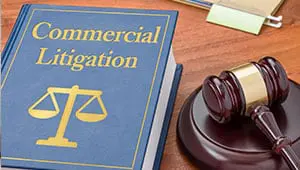What Are Possible Outcomes In Manhattan, NYC Commercial Litigation?

A settlement is a voluntary resolution that the parties reach. A settlement may occur at any stage of the case. A settlement usually involves the payment of money by the defendant to the plaintiff. A settlement may either be reduced to writing or made between counsel in open court. A settlement is reduced to writing in a settlement agreement and general release signed by the litigants. In the settlement agreement’s general release, the plaintiff waives and releases its causes of action against the defendant.
Dispositive motions include, for example, a motion to dismiss for failure to state a cause of action, and a motion for summary judgment. By granting a dispositive motion, the Court decides the case without a trial.
On a motion to dismiss for failure to state a cause of action, the defendant maintains that, taking as true the facts alleged in the plaintiff’s complaint and the reasonable inferences drawn from those facts, the plaintiff’s allegations do not set forth a cognizable claim. The defendant typically brings any motion to dismiss for failure to state a claim before the litigants have taken any discovery.
On a motion for summary judgment, the moving party (who may be either the plaintiff or the defendant) contends that, based on the facts established through the discovery process, there is no triable issue of material fact, and the movant is entitled to judgment as a matter of law. A motion for summary judgment is supported by affidavits, by the pleadings, and by other available proof, such as depositions and written admissions. The plaintiff and/or the defendant usually bring any motion for summary judgment during, or after the close of, discovery.
If the litigants do not settle the lawsuit, and the Court does not grant any dispositive motion made by the plaintiff or the defendant, then the lawsuit is tried before either a jury or the judge. A trial before a jury is termed a jury trial. A trial before the judge is called a bench trial.
At trial, the litigants call and examine witnesses, and introduce documentary evidence.
At the conclusion of the trial, the jury issues a verdict or the court enters a judgment indicating who wins and who loses and what the remedies are. That is, the jury or the judge decides what amount of money, if any, the defendant must pay to the plaintiff or what injunctive relief is granted.
If your company wants to bring, or needs a lawyer to defend it in, business litigation and you are located in the Manhattan, NYC area, call Manhattan Business Litigation Attorney David S. Rich at (347) 970-5550.
Return to Practice Areas page.

